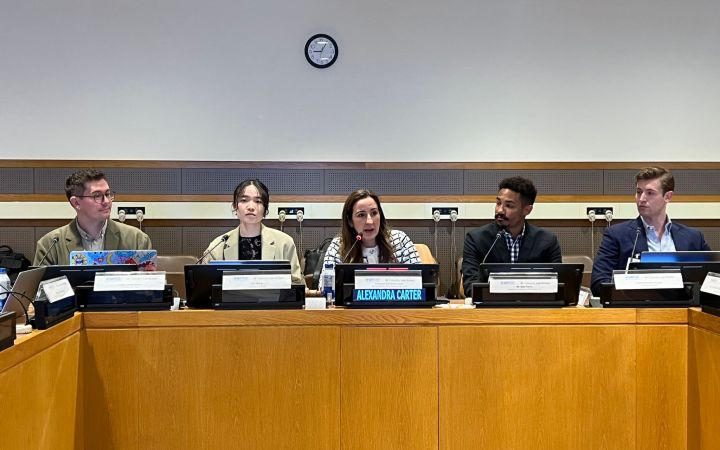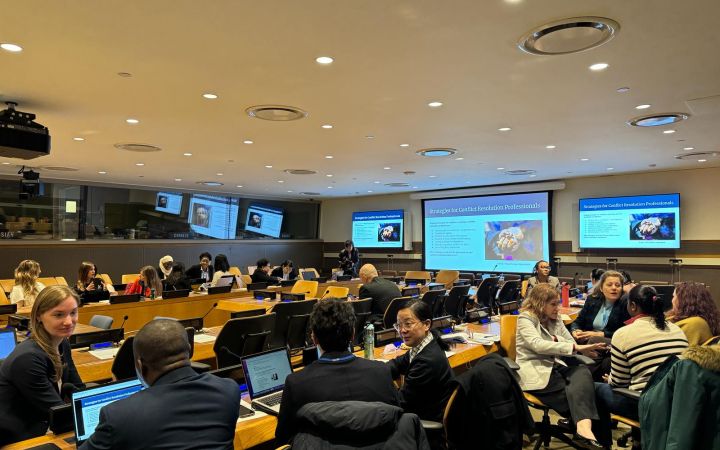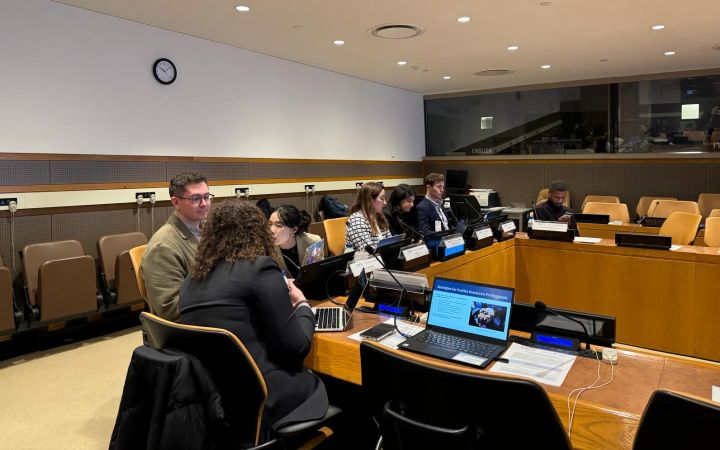8 April 2024, New York, USA - UNITAR and Columbia Law School continued the spring 2024 iteration of their longstanding partnership programme, The Columbia University Law School Series, with the second session titled “Conflict Resolution and Mental Health”.
UNITAR Programme Coordinator, Mr. Nyle Pierre opened remarks on behalf of Mr. Marco Suazo, Head of the New York Office, with a wholehearted statement on the importance of addressing mental health stressors and triggers that could lead to and exacerbate conflicts. Professor Alex Carter, Director of Columbia Law School’s Mediation Clinic, then gave her remarks on this longstanding series and the fruitful partnership between UNITAR and Columbia Law School. She also reiterated the importance of reconciling with mental health concerns, adding that, particularly in a field where challenges are constant and the people you interact with daily have many different backgrounds and life perspectives. She then proceeded to introduce the Columbia Law School team that will deliver the day’s presentation.
The first part of the presentation introduced a definition of mental health and talked about the connections between mental health and conflicts. The presenters also covered some tools from negations and mediation that can be used to resolve such conflicts. Participants engaged in an ice-breaker where they talked about their understanding of mental health and reflected on recent moments of “conflict”. It should be noted that Professor Carter stressed the need for confidentiality and a “stays in this room” policy for any stories that participants shared.
The Columbia University presenters went over the “Social” definition of mental health compared to the “Medical” definition, covered common disorders and challenges, and provided an overview of global statistics about the topic. They then delved into ways to identify mental health concerns and provided some mechanisms for addressing them, including trauma-informed responses.
After a brief break, the participants engaged in a couple of group exercises on identifying and understanding conflicts and a discussion on how conflicts exacerbate mental health. To end, the Columbia presenters provided resources for guidance on mental health mindfulness during conflict resolution, and emphasized the importance of language and asking questions.




